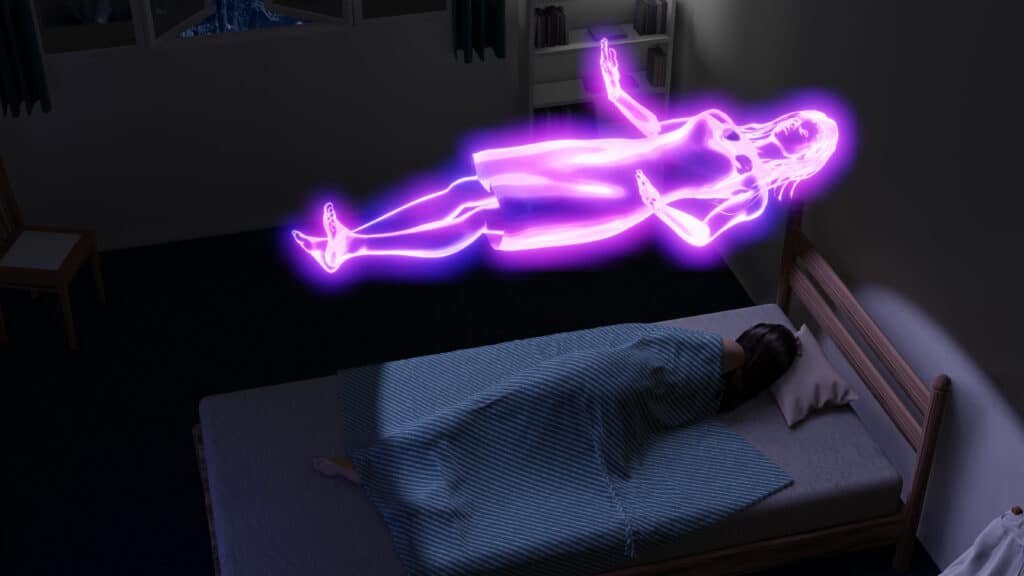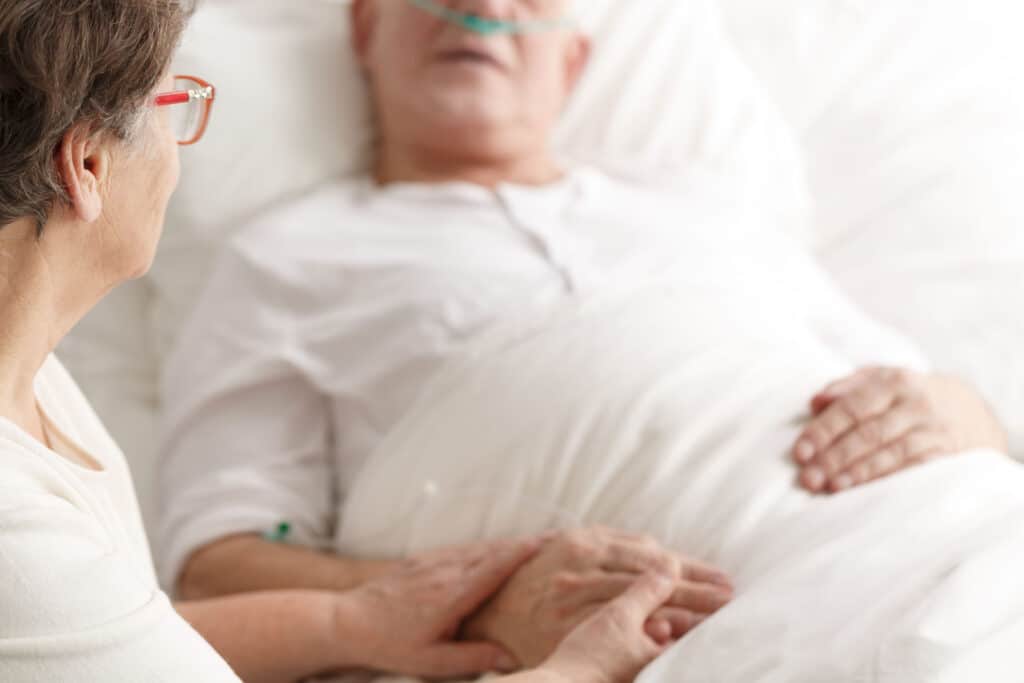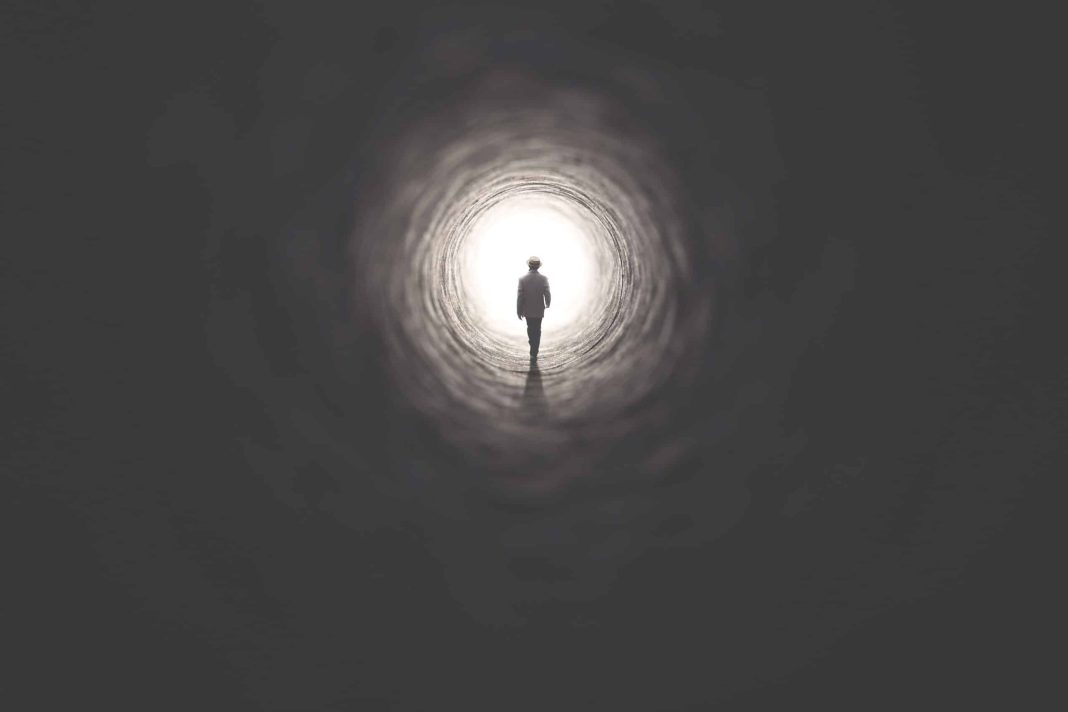A recent study undertook the question of how psychedelics change our thoughts on death; in comparison to near-death experiences, and other irregular experiences. What did the study find regarding our changing attitudes about death and dying? Read on for more information.
Study on psychedelics effect on feelings about death and dying
The study, entitled, Comparison of psychedelic and near-death or other non-ordinary experiences in changing attitudes about death and dying, looks at several different scenarios, and how they effect our thoughts on death and dying; as well as to gauge which specific psychedelic drugs caused the greatest change in these thoughts.
According to study authors, “Both psychedelic drug experiences and near-death experiences can occasion changes in perspectives on death and dying, but there have been few direct comparisons of these phenomena. This study directly compared psychedelic occasioned and non-drug experiences which altered individuals’ beliefs about death.”
The study used 3,192 participants, split into five groups. These groups were: 1) those who had a near-death or irregular experience without use of a drug (933 participants); and those who had a near-death or irregular experience using psychedelics, with 904 in the LSD group (group 2), 766 in the psilocybin group (group 3), 282 for ayahuasca (group 4), and 307 in the group that did a non-ayahuasca form of DMT (group 5).
How the study was done
The participants were recruited in different ways over the internet; including through a newsletter, email invitation, blog post, social media post, or advertisement. The participants took one of two surveys. Th first was geared toward near-death experiences, but which also included other irregular experiences like feeling out-of-body. The second survey was about psychedelic experiences. The surveys were hosted on www.qualtrics.com, with appropriate links per survey. Each participant gave consent on the first page of the survey.
On this consent page, investigators listed the purpose of the study, for the participants to understand what they were giving information for. It read, “to characterize an experience that fundamentally altered your beliefs or understanding about death and dying.”
Participants were put in the Psychedelics Group, if they filled out a survey based on taking a classic psychedelic drug: LSD, psilocybin (magic mushrooms), or DMT (whether ayahuasca, or just DMT). The Non-Drug Group completed their own survey about a near-death experience, or some other irregular occurrence. Completion of the survey was required for entry, and all participants remained anonymous. No participants received any compensation for participation. The Johns Hopkins University School of Medicine Institutional Review Board, approved study procedures.
The surveys used multiple choice questions and open-ended fill-in questions, to gain information on the experiences. In the Psychedelic group, questions were included about length of experience, if there was a threat to life, how it happened, and what it was like. Study subjects filled-out an assessment of what they experienced, and how it affected them, using the Greyson Near-Death Experience (NDE) Scale.
This included subscales for ‘cognitive’ effects, ‘affective’ effects, ‘paranormal’ effects, and ‘transcendental’ effects. The Hallucinogen Rating Scale (HRS) was used to evaluate subjective details and any life change associated with the experience. Investigators also used the following assessment tools: States of Consciousness Questionnaire, the Persisting Effects Questionnaire, and the Mystical Experience Questionnaire.
These were accompanied by a single question “During your experience, did you encounter something that someone might call ‘God’”. Participants then filled out the Revised Death Attitude Profile, to evaluate how their views changed pre and post experience; and the DAP-R, which included subscales for ‘fear of death,’ ‘death avoidance,’ ‘neutral acceptance,’ ‘approach acceptance,’ and ‘escape acceptance.’

Study results for how psychedelics affect thoughts on death
This study undertook the question for how psychedelics, and other non-drug near-death experiences, change our way of thinking about death and dying. The results indicate that both circumstances can affect how a person feels. However, the two kinds of experiences led to different results.
The Non-Drug group more often reported that they had been clinically dead, or unconscious; and that they had faced grave danger. However, the groups were very similar in how their feelings changed toward death, based on their experiences. These feelings included a reduction in the fear of death, as well as positive and persistent effects related to the personal meaning of an event, the psychological insight into it, and its spiritual significance.
The study results indicate that though both groups were associated with increases in near-death and mystical experiences; that the Psychedelics group had greater and more significant results. The Non-Drug grouping was more likely to view the experience they had as the absolutely most meaningful experience of their current lives.
In terms of assessing which psychedelics led to the greatest effects on feelings of death and dying, the two DMT groups (DMT and ayahuasca) reported stronger and longer-lasting positive results from their experience, than those who used LSD or magic mushrooms. For the latter two drugs, the results were nearly the same.
How feelings toward dying changed
The study looked at changes in personal perspective on death and dying, following a drug-fueled, or non-drug-fueled near-death or abnormal experience. A change in feelings implies a change in feelings on the topic, but does not indicate directly whether it relates to a positive experience (lessened fear) or negative experience (increased fear).
This study indicates that most go toward the lessened fear end. The results found that 90% said their experience decreased their fear of death and dying. According to study authors, not only did it take away fear for these participants, but the experience often “resulted in positive, desirable changes in their curiosity and attitudes about death, including their own death.”

Researchers found that less than 1 out of 10 participants said they had an increase in fear of death or a negative change in their overall feelings on the matter. This indicates that near-death and other irregular experiences, are more highly correlated with a lessening of fear, than an increase of it; when it comes to personal thoughts on death and dying.
Psychedelics for end-of-life care
Though this might be one of the first studies formally into this concept, the idea that psychedelics can reduce fear and anxiety in end-of-life situations, and in palliative care, is understood. In fact, its so well understood, that this is often the reasoning for a push to legalize psychedelic compounds.
End-of-life scenarios usually relate to the end of a sickness, or age-related decline. Palliative care refers to the treatment of illnesses that are terminal, or otherwise very serious, and a cause for extreme discomfort to the patient. Psychedelics are already being eyed for their ability to aid in the fear and anxiety associated with dying, in these populations.
Right now, though this idea has grown more prevalent, there are few-if-any current exemptions for this purpose. But it is being studied. In 2022, we reported that British start-up Clerkenwell was scheduled to begin trials into the use of psilocybin for those with terminal diagnoses or undergoing palliative care.
It’s not surprising that psychedelics can be used in this way, as its becoming more and more understood the part these drugs can play in PTSD, another ailment related to fear. Not only have fMRI and EEG studies shown a lessened fear response in relation to use of drugs like DMT and MDMA; but the organization MAPS already received a ‘breakthrough therapy’ designation for its MDMA PTSD drug; Colorado already legalized the compound for medical purposes, contingent on a federal approval; and Australia recently became the first country to approve MDMA for medical use.
Conclusion
We also currently have an industry of ketamine clinics in the US related to helping people with all kinds of mental health issues, including anxiety. And an incredible amount of research into multiple psychedelic, and non-psychedelic hallucinogens, for a plethora of psychiatric purposes. This new research into how psychedelics can mitigate fear of death and dying, helps expand out knowledge on the uses of these compounds.
Welcome all! We at Cannadelics.com, appreciate your visit. We’re a hard-working team, here daily to bring you the best in reporting for the cannabis and hallucinogen spaces. Visit us frequently to stay up-to-date on important happenings, and check out the Cannadelics Weekly Newsletter; so you’re always up on what’s going down.





